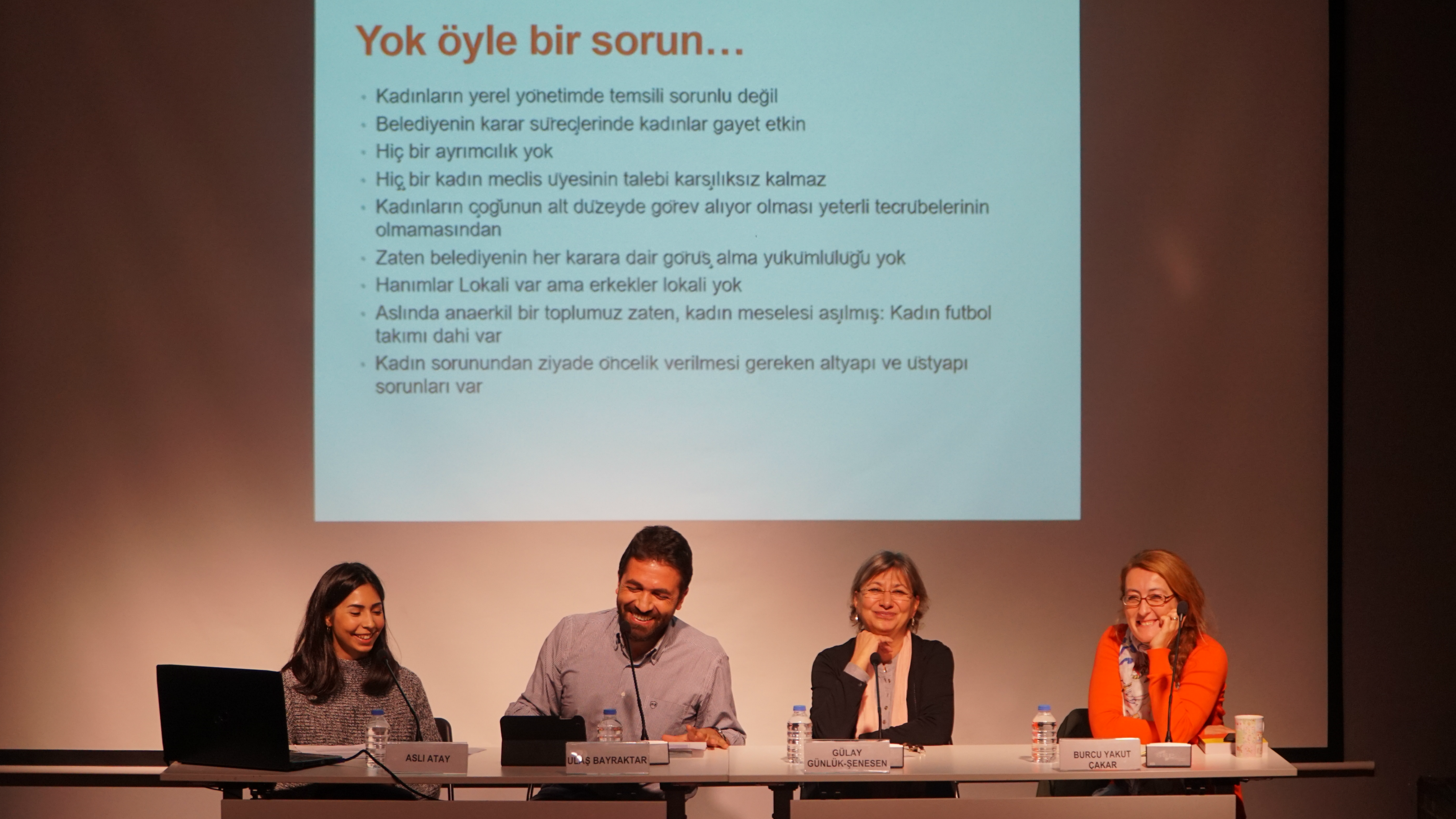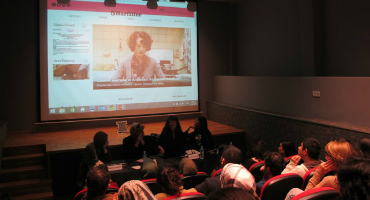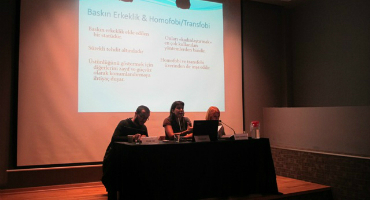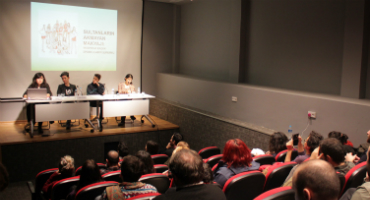Organized by Asulis Discourse Dialog and Democracy Laboratory of Hrant Dink Foundation, the panel discussion titled 'Women and discrimination in local governments' was held on October 25, 2017 in Anarad Hığutyun Building Havak Hall.
Moderated by Gülay Günlük-Şenesen, who is a member of Women Labor and Employment Initiative (KEİG) working on gender-sensitive budgeting, security expenses, input-output modeling and gender-based discrimination in employment, and a co-author of Cities without Women, the panel was held with the participation of Burcu Yakut Çakar who is also a co-author of Cities without Women and studies on transformations in social policies, poverty, income distribution, conceptualization and measuring of social welfare, gender and social policy, social welfare mechanism and healthcare policies; Ulaş Bayraktar who is the author of the report Women in Municipalities, Municipalities for Women issued by Turkish Economic and Social Studies Foundation (TESEV); and TESEV Project Manager Aslı Atay who carried out the fieldwork of the same report.
In her opening speech, Gülay Günlük-Şenesen stated that the rights of the disadvantaged groups who are recently started to be addressed in municipal agenda must be protected on the basis of human rights and municipal services must be planned in this regard; she also pointed out that women’s abilities and demand of visibility in the cities must be considered. Stating that services of local governments directly affects people’s lives compared to those of central government and for that reason municipal boards must be regarded as the main party in terms of establishment of social unity and urban rights, Şenesen emphasized the importance of the works in this field in order to facilitate the transformation of service providers.
After Gülay Günlük-Şenesen’s opening speech, Ulaş Bayraktar and Aslı Atay presented the report Women in Municipalities, Municipalities for Women issued by TESEV. Having carried out the fieldwork, Aslı Atay stated that the representation rate of women in all municipalities is 3% by referring to findings concerning the local elections held in 2014. Atay stated that she shapes her researches around the question how the representation of women in local governments affects services for women and they checked the representation rate of women in 30 metropolitan municipal councils for this purpose. Stating that they reduced this number to 11 in consideration of geographical and political distribution, Atay said that they tried to examine both women’s participation in decision-making mechanisms and services for women in a detailed way. Speaking after Atay, Ulaş Bayraktar stated that functioning and day-to-day mechanism of the politics in Turkey is subjected to a more crystalized discrimination in regard to women. Indicating that the form of local politics in Turkey is dependent on internalizing the twisted relations of this mechanism, Bayraktar emphasized the role of the actors by saying “If you are against this type of mechanisms and politics, you either don’t try to get involved in this process at all or you are dismissed in the process; and in some cases, you might even internalize this without realizing it.” Reminding that there is also a silver lining in this under-representation of women particularly in local governments and generally in politics, Bayraktar underlined the importance of the representation of women in the ways they contribute to different ways of doing politics instead of being a part of this twisted relationship. Stating that they are faced with the claim that women are not under-presented in politics and they are even over-presented and have a determining role, Bayraktar said that most men are trying to fabricate evidence showing that women participate in political processes.
Lastly, Burcu Yakut Çakar stated that their point of departure is the assertion that public policies are not impartial in terms of gender and that interventions by the public are not always corrective, on the contrary, sometimes they lead to reinforcement of the existing inequalities. Presenting the theoretical and analytical framework on which the book Cities without Women is based, Çakar shared the findings of the fieldwork which are significantly extensive. Stating that we have to interpret gender inequality from a multi-dimensional perspective in situations where discrimination and inequalities are intersected, Çakar pointed out that a peace-based approach has a facilitating effect both in practice and as an analytical tool. Noting that policies need to be designed considering their various effects by implanting gender perspective into public policies that are unneutral or by mainstreaming strategy; or the resources for the activities and the pledges and outcomes regarding those resources need to be monitored in terms equality, Çakar added that the budget is a difficult mechanism as much as simple it is as a tool to detect discrimination. Stating that gender-sensitive budgeting perspective is central to her researches, Çakar emphasized the importance of this perspective in terms of restructuring of income and expenses.





